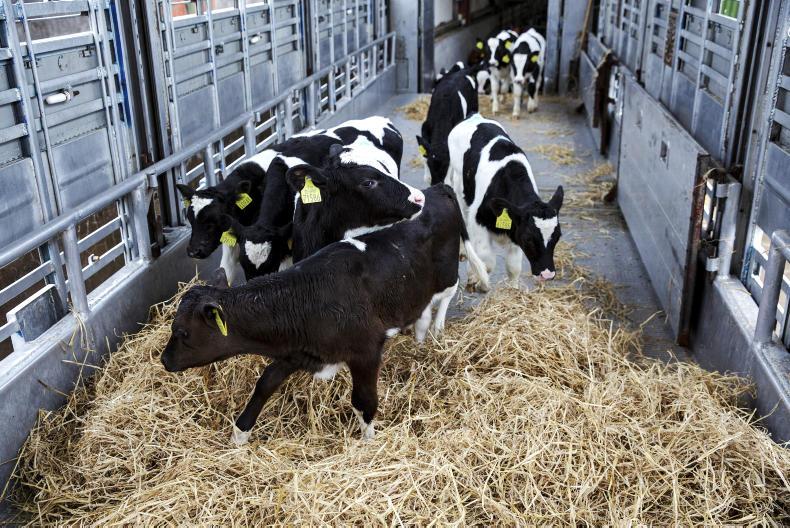Calf exports have now been affected by the coronavirus outbreaks across EU markets.
Exports last week were 10,646 head, according to Department of Agriculture provisional figures. This was down from 14,910 the previous week.
Deliveries to the Netherlands were down by more than half to 4,200 head. Deliveries to Spain fell by 22% to 3,169.
Some of the problems were due to difficulties in the movement of trucks when tighter public health restrictions were introduced across the continent.
The policy in most member states is that commercial goods, including livestock, can flow as normal
Some veal units were unable to move finished stock for slaughter, meaning they weren’t ready to take in new stock as they had planned. This resulted in fewer orders for Irish calves.
The policy in most member states is that commercial goods, including livestock, can flow as normal. Exporters are hoping that this is what will happen and that orders for calves and deliveries will pick up again quickly.
But veal units are also concerned about availability of staff and lower restaurant demand in the coming weeks as coronavirus cases rise.
Ironically, all of this happens after problems with rough seas and lairage at Cherbourg have eased.
Lairage space at Cherbourg will now be less of a limiting factor after being expanded to 5,600 calves per sailing day.
Calf prices fell at some mart sales over the past week, reflecting the lower demand, with more export-type calves selling in the €30 to €50 range.
Meanwhile, a study in the Netherlands has found that Dutch farms rearing Irish calves require 30% less antibiotic usage than those taking calves from Germany or even the Netherlands.






 This is a subscriber-only article
This is a subscriber-only article










SHARING OPTIONS: